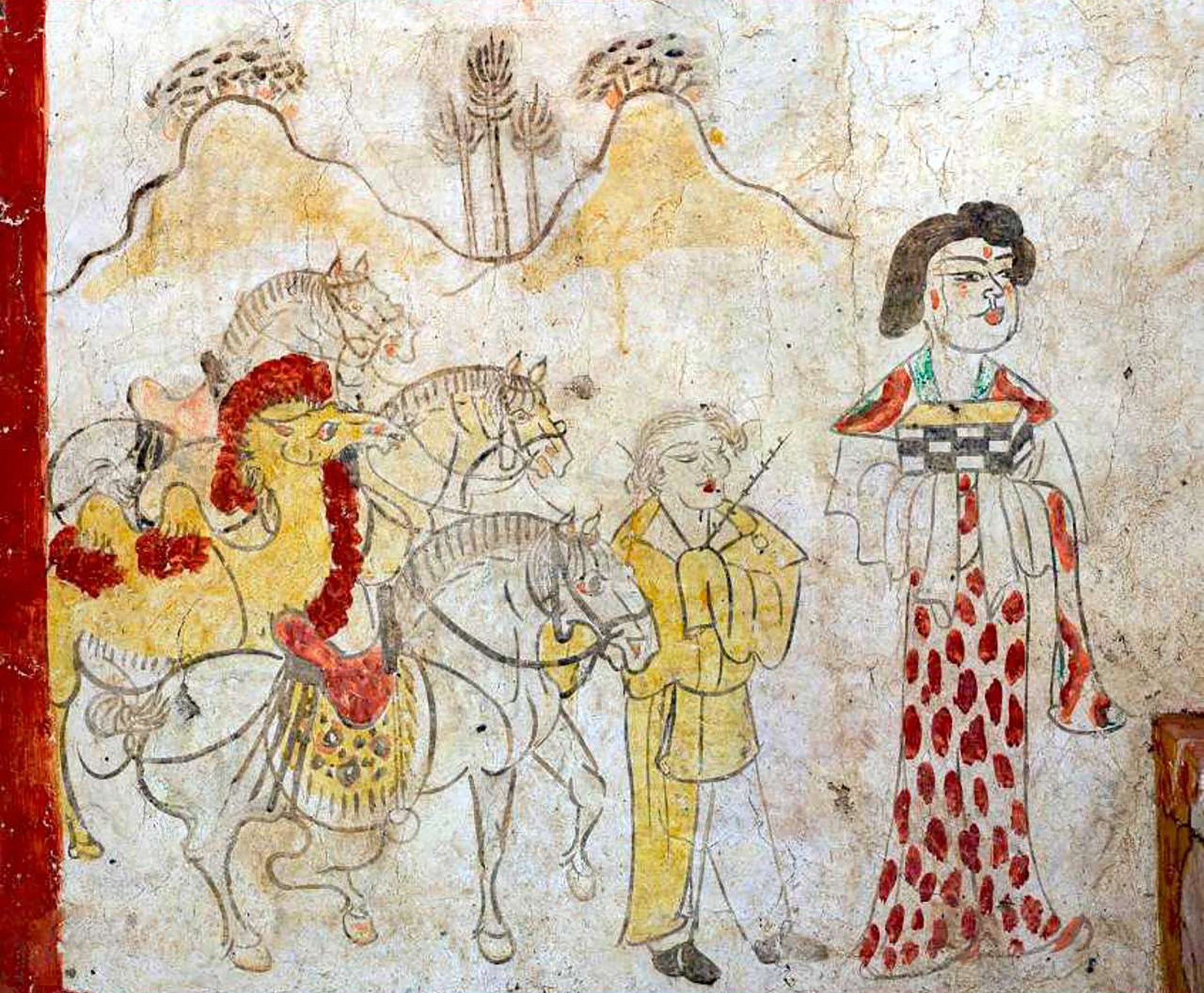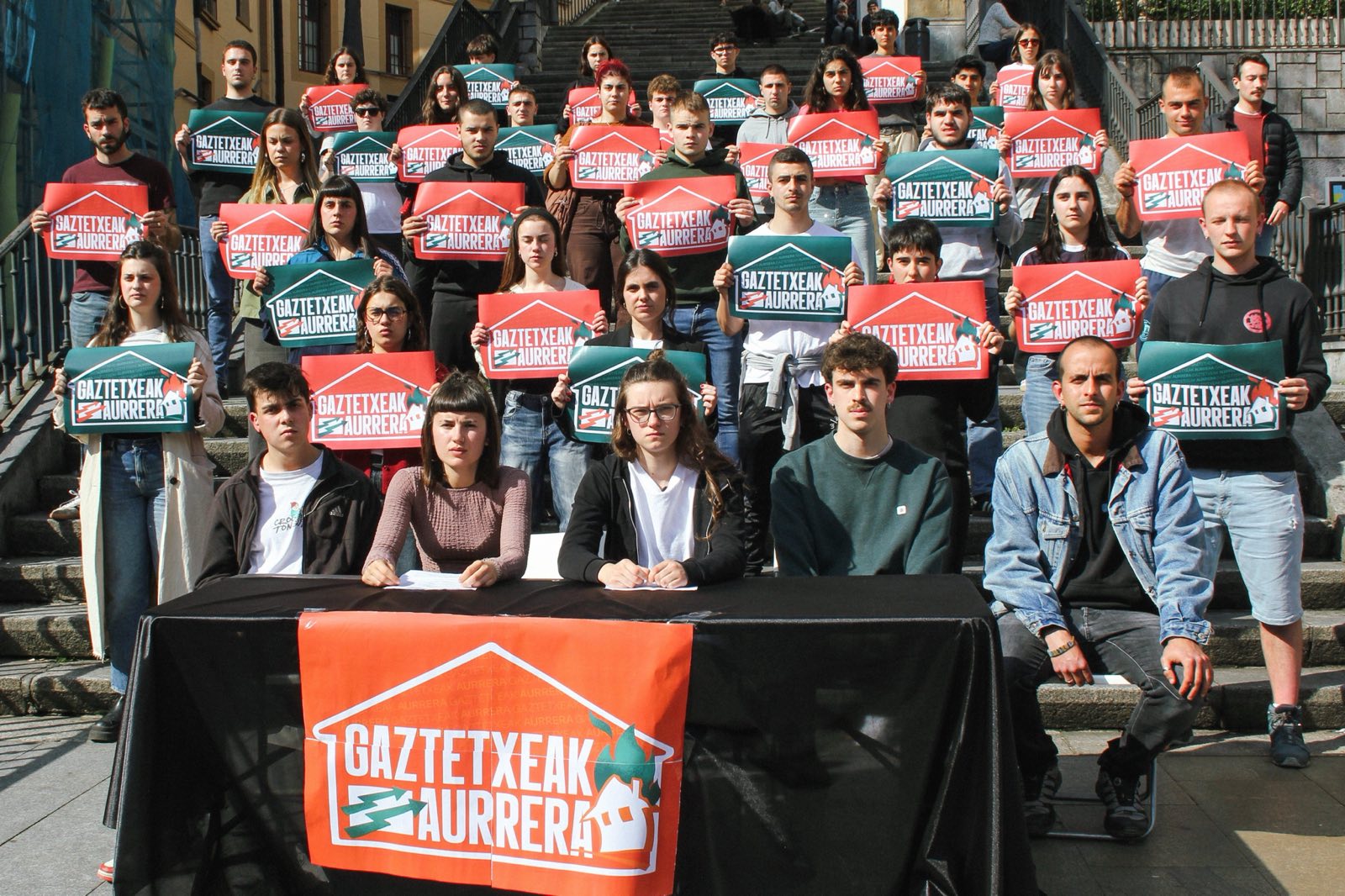Society
Environment
Politics
Economy
Culture
Basque language
Feminism
Education
International
Opinion
thursday 08 may 2025
Automatically translated from Basque, translation may contain errors. More information here. 
The last trick of Marc-Édouard Nave
- The cultural critic uses politics and morality when he does not know how to manage the use of the corresponding analytical tools. He then vetoes the writer’s work rather than studying literature. Each time and place has its own correct thinking and defamation clichés that fit well with it. The censors treat the reader with parenting and misery, blocking their criteria and explaining the consequences beforehand. The author is then forced to treat the elite of experts well, at least if he wants to stay on stage. This has disgusted Marc-Édouard Nabe from the very beginning. Compensation, with exceptions, for having to resort to performance outside the scene, to anti-editing.

www.alainzannini.com
“No, that this is really disgusting, unacceptable, it’s going to seem too much to you, too,” my then-friend told me. He introduced me to him by the name of Marc-Édouard Nabe, his natural appellation for Alain Zannini. Born in Marseille on December 27, 1958 and educated in a school that applied communist ideology. The jazzman Father Marcel Zannini. Of Greek-Turkish origin. Other undesirable Gauls were also in our eyes and hands. We compulsively consumed the cartography of the gauchists of Le Monde Diplomatique. Dieudonné M’bala M’bala’s fever hit us two years ago, the vaccine against fertilizers is a success. Like him, we ourselves took a taste of urine to the ambient air, “no, believe us, it’s air!” the others repeated to us. The taste buds are thinner than we thought, and we had already begun to perceive that they existed in the French Republic, and by extension in Francophonie, the official criminals were beaten by the media, to name a few: Bernard-Henri Lévy, Éric Zemmour, Alain Finkelkraut, Besancenot, Stéphane Guillon, Didier Porte and, without a doubt, Michel Houellebecq of Goncourtuta. Melenchon (Parti de gauche, PG) has recently raised the alarm that many of those who are throwing stones at demonstrations are policemen dressed in civilian clothes, the same thing in the lyrics has been happening in the Republic for a long time. It is well known that the true dissident does not even turn on the microphone if he is not in the casern, in the presence of the judge or about to die in the open.
That's disgusting. It is unacceptable. Too much of it. I watched the video of the network following the member's envy. It was the Apostrophes session of February 15, 1985: Bernard Pivot was only one of the directors and guests of Marc-Édouard Nabe. He was about to present his first book: The Pleasure of Lice (Au régal des vermines, 1985). True, surprising Nabe: a young writer who pointed well and quickly, throwing bitter adjectives lightly with his eyebrows raised. It wasn't his rhyming rifle, the kind that draws shreds, squares, or zig-zags to check if the bodies are dead. The precision rifle was placed in the eyebrow arts and made the heads fall fite, unbearable for the benefactors: a single bullet enough to leave the urine vendors without heads, Vasili Zausev of literature. At the end of the session, Georges-Marc Benamou went to the studio and scratched the sniper’s retina from his left eye with his fist (minus). Perhaps the fundamentalist of the freedom of expression of the fists wanted to destroy one of the writer’s analytical tools. Other beatings that Nab received on behalf of that telesaio, most notably when he was referred to the court by the Jewish community organization LICRA. He was then charged with “defamation and incitement to racial hatred.” The court suspended the sentence in 1989. The media and the political curators of literature have continued to incite political insults when they had to speak in letters. Two were used: anti-Semite and extreme right. Mr. Nor and Mr. Trotski praised him and admired his prose for praising the same author. Assisted by Férdinand Celine.
In any case, it will not be without reason that the list of the great in the world of French letters is saturated with this insult or other political and moral insults: Aragon, Pierre Louÿs, Sade, Apollinaire, Breton, Bataille, Desproges, Siné, Serge Halimi, Alain Greish. The world of letters, so generous twenty years after his death, fancies the same thing written in the Soviet Short Encyclopedia of Literature, in the form of myth: “Illegally repressed. After his death.” Too late for such rehabilitation for the contemporaries, Nab himself predicted in Le Vingt-Septième Liv: “When I was young I dreamt of a destination like André Suarès or Léon Bloy; I have succeeded. Let’s be logical: since my contemporaries consider me dead, they say that I no longer exist for their eyes. I'll see you in a hundred years! In the meantime, that’s it.”
The slab that could have the beach underneath has been revealed in 2010:The Man Who Stopped Writing (L’Homme qui arrêta d’écrire, antiedition 2010), twenty-eighth work. Considering that the previous one (Le Vingt-Septième Livre, 2006) was a new edition of the first one (Au régal des vermines, 1985), prepared with a pyromanic prologue against his second-person neighbour Houellebecq. In his last work, he has had several friends of the French letters in the eye, making the necessary spelling changes to avoid sentences, among them, he points out: Bernard-Henri Lévy, Ruquier, Beigbeder, Benichou. The story: a walk in Paris of an adult writer and a young blogger who has stopped writing, walking through the theme park of the literary world that is dead.
The man who stopped writing, he was like that for six years, saying he didn't write here and there, secretly creating 700 pages. Meanwhile, he wrote literary pamphlets about politics and pasted and distributed them in Paris, Marseille, Toulouse and Bordeaux in Occitanie, in October. Among them are: The Zidane Circus (Zidane la racaille, 2006) on immigrants and the lack of political engagement of the footballer, Et Littell niqua Angot (2006) on the literary phenomena Beigbeder-Houellbecq-Angot-Littell, the explosive of Damocles (La Bombe de Damoclès, 2007) on the right to have nuclear devices of Ahmadinejad or Black! (Enfin nègre!, 2006) on the election of Obama.
It is wrong to think that the source of the author of novels, pamphlets, poems, chronicles and diaries will be extinguished after L’homme. Even more difficult, however, is the mere imagining of what it can produce after non-writing.
He has not been welcomed in the media for a long time, since the first time he has received insults in theirs. Publishers, distributors, cultural journalists, literary critics in the press and booksellers have found them “parasitic.” When it comes to publishers, he says that “the big ones are absorbing and the small ones just want to be big.” For this reason, for the twenty-eighth, he has ignored both the traditional session of editor-distributor -sales-presentation and self-publishing platforms such as L’Harmattan.
He calls the bet “anti-edition.” In issue 44 of La Revue Littéraire, he says he wants to encourage other writers to leave “all contracts and all borders.” He wanted to show that the system is not invulnerable. He tells the story to prove it. He goes back to the time when he joined Victor Hugo Lacroix in Guernsey in 1862. The profits of Les Misérables were then distributed to 50%, it was in Lacroix’s hands to print, edit and act as a bookseller. Since then, the writer’s profits have been declining and since 1913 Gaston Gallimard has limited the crumbs to 10%. Nab says that Gallimard “asked the authors for the exclusivity of the books, after telling them that they would win the 10% and finally indicating where they had to sign.” Returning to the example of Victor Hugo, after the editing by Mr. Lacroix, the author could do whatever he wanted with the manuscript. According to the Marseillan, “someone had to punch the parasites with the final whistle.” Nab has brought the cycle back to the beginning, thanks to the distribution system on his website he will get between 65% and 70% of the profits of the final book. No bar codes, far from the hands of distributors and booksellers. A Parisian butcher shop to buy physically, a clothing store and two florists to choose from, available to those who have “friends”.
There was no news of Nab’s latest book by the classical media. Ce soir, ou jamais! that has become the retserva of the Desirables! Apart from Frédèric Taddëi’s programme, few reported on the publication of L’hommen. The pumpkin lights up when it appears on the list of candidates for the Renaudot Awards. The book that is not in bookstores was a candidate for the first time. The lobby has made clear its interest in the diversity of letters: who wins the competition to those five, as long as there are winners every year they will be equally victorious. The results recently published by Le Monde des livres testify to this in relation to the “Goncourt effect”. Atiq Rahimi’s Syngué Sabour (POL, 2008), which had barely made a career, sold thirty-three times more after receiving the award (8,500 before, 280,000 after), Marie Ndiayen Trois femmes puissantes (Gallimard 2009), which had sold well enough six and a half times more (79,000 to 515,000) and Les Bienveantes (Gallimard 2006), who had best-seller Jonathan Gallimtell, also sold three times more (190,000). Nab called himself a “worst-seller.” And yet, the stores would have noticed – in the end, Virginie Despentes won – that there was no book in the window of one of those who was on the Renaudot list. Win or not, because the confusion that has been created has led to the spread of traditional media and the new in eleven places of the network. Clearly, Nab's latest trick has not given many pockets a chance to fill. After all, even the booksellers who despised his books had a price so far. This was the latest act of the fool who went to that country when his son
Bush wanted to blow up Iraq, who portrays the rigging bank Mesrine as a hero, who makes blacks of the highest race, who says that everything is going normal “too normal, that’s what’s worrying” and who writes and says so many things, that might have provoked more outrage than his opinions of Jews and Plutocrats.
From the beginning of the presentation card: - The anti-Semite! To the right! He's an anarchist!
That's disgusting. It is unacceptable. Too much of it. I watched the video of the network following the member's envy. It was the Apostrophes session of February 15, 1985: Bernard Pivot was only one of the directors and guests of Marc-Édouard Nabe. He was about to present his first book: The Pleasure of Lice (Au régal des vermines, 1985). True, surprising Nabe: a young writer who pointed well and quickly, throwing bitter adjectives lightly with his eyebrows raised. It wasn't his rhyming rifle, the kind that draws shreds, squares, or zig-zags to check if the bodies are dead. The precision rifle was placed in the eyebrow arts and made the heads fall fite, unbearable for the benefactors: a single bullet enough to leave the urine vendors without heads, Vasili Zausev of literature. At the end of the session, Georges-Marc Benamou went to the studio and scratched the sniper’s retina from his left eye with his fist (minus). Perhaps the fundamentalist of the freedom of expression of the fists wanted to destroy one of the writer’s analytical tools. Other beatings that Nab received on behalf of that telesaio, most notably when he was referred to the court by the Jewish community organization LICRA. He was then charged with “defamation and incitement to racial hatred.” The court suspended the sentence in 1989. The media and the political curators of literature have continued to incite political insults when they had to speak in letters. Two were used: anti-Semite and extreme right. Mr. Nor and Mr. Trotski praised him and admired his prose for praising the same author. Assisted by Férdinand Celine.
In any case, it will not be without reason that the list of the great in the world of French letters is saturated with this insult or other political and moral insults: Aragon, Pierre Louÿs, Sade, Apollinaire, Breton, Bataille, Desproges, Siné, Serge Halimi, Alain Greish. The world of letters, so generous twenty years after his death, fancies the same thing written in the Soviet Short Encyclopedia of Literature, in the form of myth: “Illegally repressed. After his death.” Too late for such rehabilitation for the contemporaries, Nab himself predicted in Le Vingt-Septième Liv: “When I was young I dreamt of a destination like André Suarès or Léon Bloy; I have succeeded. Let’s be logical: since my contemporaries consider me dead, they say that I no longer exist for their eyes. I'll see you in a hundred years! In the meantime, that’s it.”
Whistle to the experts and the millieu of letters in the new book
The slab that could have the beach underneath has been revealed in 2010:The Man Who Stopped Writing (L’Homme qui arrêta d’écrire, antiedition 2010), twenty-eighth work. Considering that the previous one (Le Vingt-Septième Livre, 2006) was a new edition of the first one (Au régal des vermines, 1985), prepared with a pyromanic prologue against his second-person neighbour Houellebecq. In his last work, he has had several friends of the French letters in the eye, making the necessary spelling changes to avoid sentences, among them, he points out: Bernard-Henri Lévy, Ruquier, Beigbeder, Benichou. The story: a walk in Paris of an adult writer and a young blogger who has stopped writing, walking through the theme park of the literary world that is dead.
The man who stopped writing, he was like that for six years, saying he didn't write here and there, secretly creating 700 pages. Meanwhile, he wrote literary pamphlets about politics and pasted and distributed them in Paris, Marseille, Toulouse and Bordeaux in Occitanie, in October. Among them are: The Zidane Circus (Zidane la racaille, 2006) on immigrants and the lack of political engagement of the footballer, Et Littell niqua Angot (2006) on the literary phenomena Beigbeder-Houellbecq-Angot-Littell, the explosive of Damocles (La Bombe de Damoclès, 2007) on the right to have nuclear devices of Ahmadinejad or Black! (Enfin nègre!, 2006) on the election of Obama.
It is wrong to think that the source of the author of novels, pamphlets, poems, chronicles and diaries will be extinguished after L’homme. Even more difficult, however, is the mere imagining of what it can produce after non-writing.
From the media boycott to the anti-edition
He has not been welcomed in the media for a long time, since the first time he has received insults in theirs. Publishers, distributors, cultural journalists, literary critics in the press and booksellers have found them “parasitic.” When it comes to publishers, he says that “the big ones are absorbing and the small ones just want to be big.” For this reason, for the twenty-eighth, he has ignored both the traditional session of editor-distributor -sales-presentation and self-publishing platforms such as L’Harmattan.
He calls the bet “anti-edition.” In issue 44 of La Revue Littéraire, he says he wants to encourage other writers to leave “all contracts and all borders.” He wanted to show that the system is not invulnerable. He tells the story to prove it. He goes back to the time when he joined Victor Hugo Lacroix in Guernsey in 1862. The profits of Les Misérables were then distributed to 50%, it was in Lacroix’s hands to print, edit and act as a bookseller. Since then, the writer’s profits have been declining and since 1913 Gaston Gallimard has limited the crumbs to 10%. Nab says that Gallimard “asked the authors for the exclusivity of the books, after telling them that they would win the 10% and finally indicating where they had to sign.” Returning to the example of Victor Hugo, after the editing by Mr. Lacroix, the author could do whatever he wanted with the manuscript. According to the Marseillan, “someone had to punch the parasites with the final whistle.” Nab has brought the cycle back to the beginning, thanks to the distribution system on his website he will get between 65% and 70% of the profits of the final book. No bar codes, far from the hands of distributors and booksellers. A Parisian butcher shop to buy physically, a clothing store and two florists to choose from, available to those who have “friends”.
When the man who stopped writing blocked the gear with a book
There was no news of Nab’s latest book by the classical media. Ce soir, ou jamais! that has become the retserva of the Desirables! Apart from Frédèric Taddëi’s programme, few reported on the publication of L’hommen. The pumpkin lights up when it appears on the list of candidates for the Renaudot Awards. The book that is not in bookstores was a candidate for the first time. The lobby has made clear its interest in the diversity of letters: who wins the competition to those five, as long as there are winners every year they will be equally victorious. The results recently published by Le Monde des livres testify to this in relation to the “Goncourt effect”. Atiq Rahimi’s Syngué Sabour (POL, 2008), which had barely made a career, sold thirty-three times more after receiving the award (8,500 before, 280,000 after), Marie Ndiayen Trois femmes puissantes (Gallimard 2009), which had sold well enough six and a half times more (79,000 to 515,000) and Les Bienveantes (Gallimard 2006), who had best-seller Jonathan Gallimtell, also sold three times more (190,000). Nab called himself a “worst-seller.” And yet, the stores would have noticed – in the end, Virginie Despentes won – that there was no book in the window of one of those who was on the Renaudot list. Win or not, because the confusion that has been created has led to the spread of traditional media and the new in eleven places of the network. Clearly, Nab's latest trick has not given many pockets a chance to fill. After all, even the booksellers who despised his books had a price so far. This was the latest act of the fool who went to that country when his son
Bush wanted to blow up Iraq, who portrays the rigging bank Mesrine as a hero, who makes blacks of the highest race, who says that everything is going normal “too normal, that’s what’s worrying” and who writes and says so many things, that might have provoked more outrage than his opinions of Jews and Plutocrats.
Most read
Using Matomo
#1
Jenofa Berhokoirigoin
#2
Mikel Garcia Idiakez
#3
#4
Newest
2025-05-08
Unai Lomana Uribezubia
In the interview conducted by the New Sueskun River:
"We have organized a joyful event to proclaim that Basque belongs to all of us"
The Sorioneku movement has called for a mobilization for Saturday. In the morning they will meet from village to village in the bridges of Navarre and in the afternoon they will start a demonstration in Pamplona. It has been revealed that it will not be a "traditional"... [+]
2025-05-08
Nagore Irazustabarrena Uranga
A blonde man in 8th century China?
In the Chinese province of Shanxi, in a tomb of the Tang dynasty, paintings depicting scenes from the daily lives of the dead are found. In one of these scenes a blonde man appears. Looking at the color of the hair and the facial expression, archaeologists who have studied the... [+]
2025-05-08
Nagore Irazustabarrena Uranga
The Carthaginians were not Phoenicians
Carthage, from B.C. Around the 814. The Phoenicians founded a colony and the dominant civilization in the eastern Mediterranean spread to the west. Two and a half centuries later, with the decline of the Phoenician metropolis of Tyre, Carthage became independent and its... [+]
2025-05-08
Eneko Imaz Galparsoro
Military relations between Spain and Israel have been "closer than ever" since October 2023
A report by the Centre Delas reveals the arms trade that has been agreed between Tel Aviv and Madrid since October 2023. According to the study, Spanish and Israeli companies have never developed so many joint projects, and the Israeli military industry has never been awarded so... [+]
2025-05-08
Eneko Imaz Galparsoro
The nails for the climbing of the port of Cotatuero have been cut to claim the return of the bucardo and the forester to nature and the group Ecologistas en Acción denounces that the authors are from the extreme right
The responsibility for the action has been assumed by a group of seven mountaineers, including activist Jesús Vallés. The group denounces that the Ordesa National Park (Aragón) has become an "adventure park" and that "the tourism of the park and the increase of sports activities"... [+]
2025-05-08
Eneko Imaz Galparsoro
Camp in Baztan for the carpentry’s defendants
"We cannot allow ourselves to be accused of belonging to an organized criminal group for committing civil disobedience"
Seven citizens of Baztan will be sentenced from 19 to 23 May for interrupting the work of the urban carpentry project. In solidarity with the defendants and in order to demand their acquittal, they began a camp on Sunday in the Plaza de la Iglesia until Saturday.LA LUZ talks to... [+]
2025-05-08
Euskalgintzaren Kontseilua
The Council calls for effective steps towards free adult learning in the Basque Parliament
2025-05-08
ARGIA
Zupiria admits that the loss of a man's testicle during the emptying of Etxarri II Youth Center may be the result of "inappropriate behavior by some of the villagers"
The Minister of Security of the Basque Government has said that it is possible that the man was injured as a result of the "inappropriate behavior of some of the border guards". This person lodged a complaint and an internal investigation by the Basque Government has confirmed... [+]
2025-05-08
Eneko Imaz Galparsoro
Several youth centers and youth assemblies denounce the criminalization and police repression they have suffered
They made an appearance on Wednesday afternoon in Bilbao, calling on the "young workers of the Basque Country" to approach, organize and "fight for them". The police are described as "the oppressive tool of the state against young workers" and the need to tighten, restrain and... [+]
2025-05-08
Jenofa Berhokoirigoin
Dozens of artists demand Israel’s exclusion from Eurovision
The artists’ document of 6 May is addressed to the European Broadcasting Union. The 72 artists who have participated in Eurovision warn that Eurovision "cannot serve to cover up crimes against humanity".
2025-05-08
Gedar
Call to mobilize on Friday to denounce the latest racist police attack in Bilbao
The meeting will take place in the Plaza de la Corazón de María at 6:30 p.m., in solidarity with the people attacked by the police and to say no to police impunity.
2025-05-07
Egurra Ta Kandela baserritar ekintza
Lack of commitment of the Department of Territorial Green Balance of the DFS
The name doesn't actually preserve the being. The paper is not enough, although the paper holds everything. Until it gets wet. This is the case with the Department of Territorial Green Balance of the Provincial Council of Gipuzkoa. In fact, he has renounced what the name should... [+]
Eguneraketa berriak daude






















.jpg)

